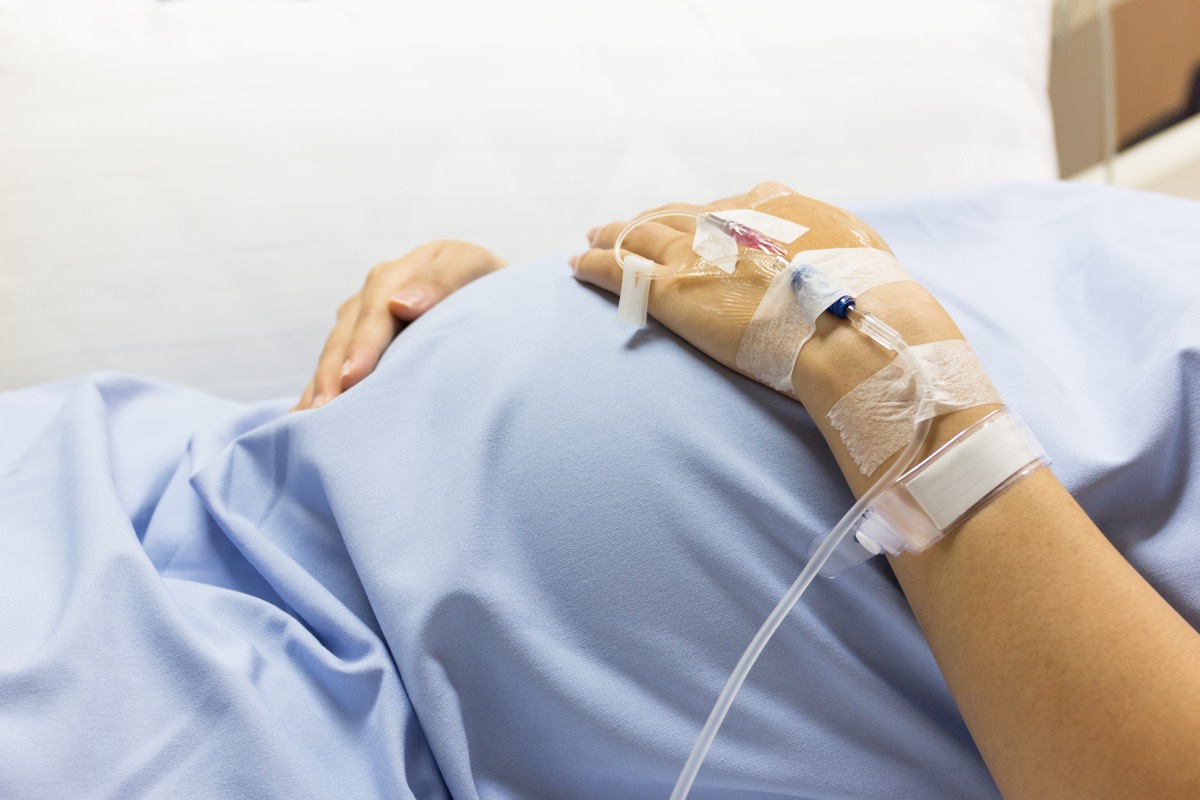Here’s What Could Happen If You Get Measles While Pregnant

Get the world’s most fascinating discoveries delivered straight to your inbox.
You are now subscribed
Your newsletter sign-up was successful
Want to add more newsletters?

Delivered Daily
Daily Newsletter
Sign up for the latest discoveries, groundbreaking research and fascinating breakthroughs that impact you and the wider world direct to your inbox.

Once a week
Life's Little Mysteries
Feed your curiosity with an exclusive mystery every week, solved with science and delivered direct to your inbox before it's seen anywhere else.

Once a week
How It Works
Sign up to our free science & technology newsletter for your weekly fix of fascinating articles, quick quizzes, amazing images, and more

Delivered daily
Space.com Newsletter
Breaking space news, the latest updates on rocket launches, skywatching events and more!

Once a month
Watch This Space
Sign up to our monthly entertainment newsletter to keep up with all our coverage of the latest sci-fi and space movies, tv shows, games and books.

Once a week
Night Sky This Week
Discover this week's must-see night sky events, moon phases, and stunning astrophotos. Sign up for our skywatching newsletter and explore the universe with us!
Join the club
Get full access to premium articles, exclusive features and a growing list of member rewards.
The measles can be dangerous for people of all ages, but the highly contagious virus poses a particular threat to pregnant women.
That threat was clearly illustrated in a recent case report, which detailed the case of a 27-year-old woman in England — who had not been vaccinated — who got measles during her third trimester and ended up needing an emergency cesarean section to save her baby.
When the woman was initially hospitalized, it wasn't clear that she had measles, according to the case report, published May 9 in the journal BMJ Case Reports. In fact, it took doctors nearly 2 weeks to make the proper diagnosis. [27 Devastating Infectious Diseases]
Within a day of being hospitalized, the woman began having severe breathing problems.
Problems that arise from any respiratory infection are more severe in pregnant women, because the immune system is in a naturally suppressed state, said lead case report author Dr. Jassimran Bansal, an obstetrics and gynecology resident at King's College Hospital in London. But the woman's breathing problems didn't improve; they worsened over the next five days, and her lungs showed signs of severe respiratory failure.
Because both the woman and her baby’s health were at risk from her illness, the woman's doctors recommended she have an emergency C-section, where she delivered a healthy, but premature baby.
Measles during pregnancy
Measles can be difficult to diagnose during pregnancy, because the infection's telltale rash is often absent, said Bansal, who was involved with the woman's treatment. It's not clear why the characteristic rash — which shows up as distinctive large red spots that typically spread from the face to the neck, trunk, arms, legs and feet — may be absent, but it's likely due to changes in the immune system that occur during pregnancy, she said.
Get the world’s most fascinating discoveries delivered straight to your inbox.
In fact, the woman did have a mild rash when she went to the hospital during her 32nd week of pregnancy. She told doctors that she also had a sore throat and fever. The rash, which was itchy with red bumps, had first appeared on the palms of her hands and then spread to her face, according to the report. But simply having a rash doesn't mean a person has the measles; other viruses can also cause rashes, Bansal said.
When the woman was admitted to the hospital, doctors initially suspected she may have had a nonspecific viral respiratory infection, like the flu, Bansal told Live Science. Measles was lower down on the list of possible diagnoses, because the woman didn't have the typical rash, and because measles in pregnancy is still very rare in England, she noted.
As her illness worsened, however, doctors noted that her rash did spread to her chest, back and stomach, a pattern that is more typical of measles, according to the report.
Making the diagnosis
As the woman recovered from both her C-section and the illness, test results suggested that her breathing problems were due to pneumonia caused by a parainfluenza virus, a type of virus linked to respiratory infections, according to the Centers for Disease Control and Prevention. (Throat cultures from people with measles will also test positive for parainfluenza virus, according to the report.)
But it wasn't until a week after the baby was born — when the woman's husband came down with measles — that the doctors decided to test her for the infection, too.
Indeed, the woman had also had the measles, the tests revealed. But luckily, her baby did not. (Babies can develop "congenital measles," a form of the disease that can be passed from mother to baby during pregnancy and appears shortly after birth.) [7 Ways Pregnant Women Affect Babies]
After spending three weeks in the hospital, the woman was sent home. Both mother and baby are doing fine, Bansal said, adding that the woman's two other children had, in fact, received the MMR vaccine before their parents had come down with the measles.
Pregnant women who have not received the MMR vaccine, as was the case with this woman, are at increased risk of severe illness and complications of measles, according to the American College of Obstetricians and Gynecologists (ACOG). The group also notes that getting the measles during pregnancy is linked with an increased risk of hospitalization and pneumonia, as well as an increased risk of giving birth prematurely, miscarriage or having a low-birth-weight baby.
- Blossoming Body: 8 Odd Changes That Happen During Pregnancy
- Are You Pregnant? 12 Early Signs of Pregnancy
- The 9 Deadliest Viruses on Earth
Originally published on Live Science.
Cari Nierenberg has been writing about health and wellness topics for online news outlets and print publications for more than two decades. Her work has been published by Live Science, The Washington Post, WebMD, Scientific American, among others. She has a Bachelor of Science degree in nutrition from Cornell University and a Master of Science degree in Nutrition and Communication from Boston University.
 Live Science Plus
Live Science Plus










